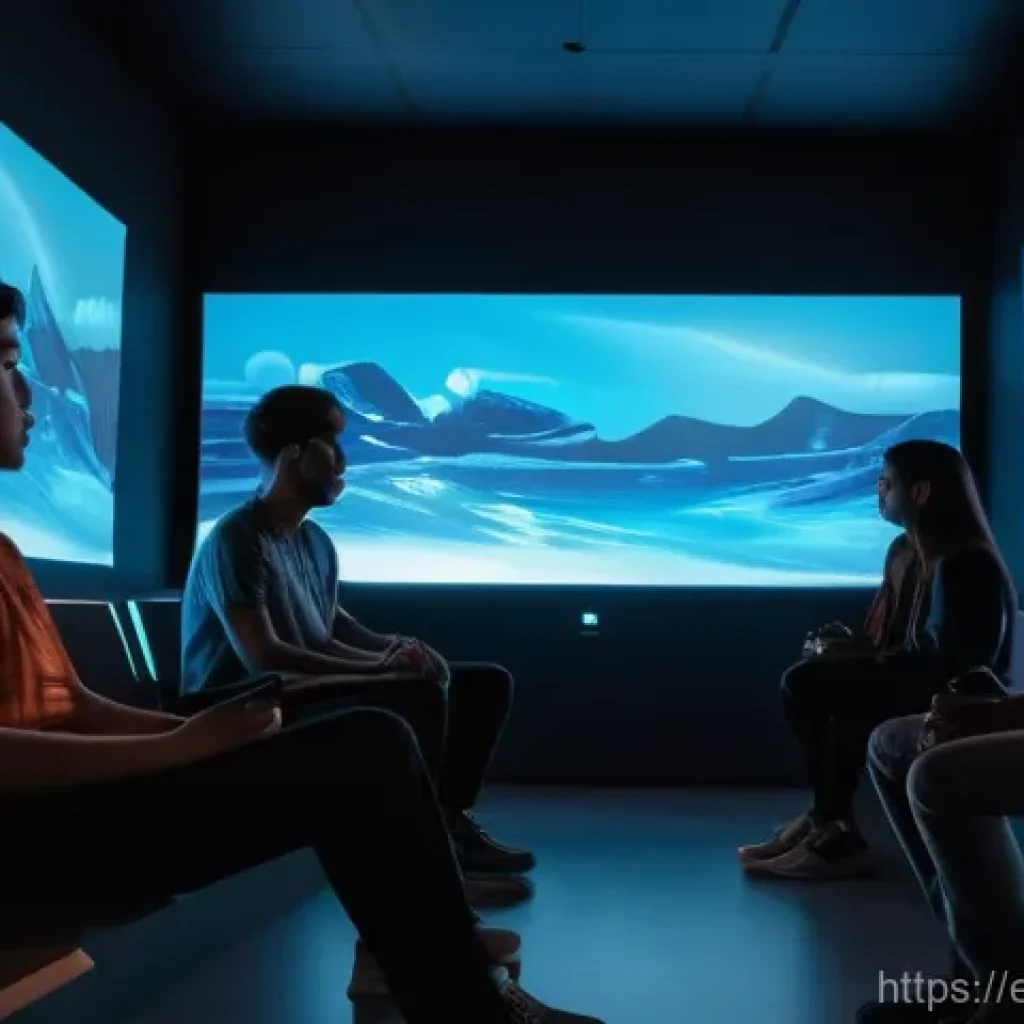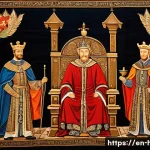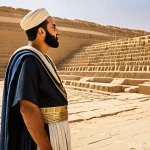Have you ever stopped to wonder why we think the way we do, or why certain ideas just seem to *stick* in our collective consciousness? For me, diving into Western philosophy isn’t just a historical exercise; it’s like unearthing the very foundations of our modern world, from our political systems to our personal ethics and even the latest tech debates.
It’s truly fascinating how thinkers from millennia ago grappling with truth, reality, and morality still echo in today’s AI ethics discussions or our evolving understanding of social justice.
I’ve personally found that tracing these intellectual threads gives you this incredible “aha!” moment, helping you connect the dots between ancient Greece and, say, a viral tweet about freedom of speech.
It’s not just dusty old texts; it’s a living, breathing conversation that’s incredibly relevant for navigating the complexities of the 21st century and even anticipating what’s next.
Let’s peel back the layers and discover the enduring power of these ideas together.
Grappling with Reality: From Ancient Forms to Digital Illusions

You know, it’s wild how the questions posed by ancient Greek philosophers about what’s truly real still echo in our hyper-connected, often digitally saturated world. When Plato talked about his “Forms” – perfect, unchanging ideals that exist beyond our senses – I used to think it was just a cool abstract idea. But then I started noticing how we categorize and label everything online, from perfect Instagram aesthetics to the idealized versions of ourselves we project. It’s like we’re constantly searching for those perfect Forms, even if they’re just pixels on a screen. I’ve personally found that understanding this ancient concept gives you a completely fresh lens through which to view everything from deepfakes to the curated realities of social media. We’re still grappling with the distinction between appearance and reality, only now, the appearances are crafted by algorithms and the reality often feels a little less tangible. It makes you wonder, doesn’t it, if we’re all just living in a modern allegory of the cave, mesmerized by shadows while the true Forms remain out of reach, or perhaps, within our own conscious effort to seek them out.
Unpacking Plato’s Cave in the Age of AI
I mean, seriously, think about Plato’s Allegory of the Cave for a second. Prisoners are chained, only seeing shadows on a wall, believing those shadows are reality. Fast forward to today, and aren’t we, in some ways, those prisoners? We’re often glued to screens, consuming perfectly optimized content, news feeds tailored by algorithms, and virtual realities that can feel incredibly immersive. The “shadows” on our digital walls are so convincing, so personalized, that it takes a conscious effort, a real philosophical push, to step outside and question the source, to ask what’s truly illuminating our experience. I’ve had countless conversations with friends who feel like they’re constantly trying to discern truth from sophisticated misinformation, and it feels like a modern-day escape from the cave, albeit one where the light outside is also constantly shifting and evolving. It really makes you appreciate the timelessness of these ideas.
Descartes’ Doubt and Our Digital Identity Crisis
And let’s not forget Descartes, right? His whole “I think, therefore I am” thing still gives me goosebumps because it’s so relevant to our digital lives. When you’re interacting with people online, when you have multiple avatars or even just different personas across social platforms, who is the “I” that’s thinking? Is it the curated professional self on LinkedIn, the casual friend on Instagram, or the anonymous commenter on Reddit? This constant shapeshifting, this fluidity of identity in the digital realm, makes me personally wonder about the stability of our sense of self. I’ve definitely had moments where I’ve scrolled through my own feed and barely recognized the person staring back, not because it wasn’t me, but because it was a version of me, carefully constructed for public consumption. It’s a fascinating, sometimes unnerving, exploration of what constitutes genuine existence in an age where our digital footprints often feel more substantial than our physical presence.
The Moral Compass: Navigating Ethics in a Tech-Driven World
It’s fascinating how the foundational ethical frameworks laid down by ancient and enlightenment thinkers still provide the bedrock for grappling with the most cutting-edge dilemmas of our time, especially in technology. When I first delved into Aristotle’s virtue ethics, I thought it was all about being a “good person” in a rather straightforward, almost quaint sense. But then you start applying it to, say, the development of autonomous vehicles or AI decision-making, and suddenly it’s incredibly potent. Are we designing systems that embody virtues like fairness, responsibility, and empathy? Or are we just optimizing for efficiency, potentially at the cost of those deeper moral considerations? I’ve personally witnessed how conversations around AI ethics often devolve into technical debates, but bringing in these philosophical perspectives helps re-center the discussion on human values and what kind of future we actually want to build. It’s not just about what technology *can* do, but what it *should* do, and that’s where these ancient guides truly shine.
Kantian Imperatives and Algorithmic Fairness
Immanuel Kant’s categorical imperative—acting only according to a maxim that you would wish to become a universal law—feels incredibly relevant when we talk about algorithmic fairness, doesn’t it? If an algorithm makes a biased decision, say, in loan approvals or hiring, could we universalize that decision-making process without causing significant societal harm? My personal take is that this framework challenges us to move beyond simply optimizing for outcomes and instead focus on the inherent moral duty embedded in the design and deployment of these powerful systems. It’s not enough for an AI to be *mostly* fair; if its underlying logic can’t be applied universally without creating injustices for certain groups, then according to Kant, we’ve got a serious ethical problem on our hands. I’ve often seen companies struggle with this, wanting to implement new tech rapidly, but truly pausing to consider the universal implications is where the real work happens, and where philosophical thought offers critical guidance.
Utilitarianism and the Greater Good of Data
Then there’s utilitarianism, the idea that the most ethical action is the one that maximizes overall happiness or utility for the greatest number of people. This one feels like it’s constantly at play in big data and privacy debates. On one hand, collecting vast amounts of data can lead to incredible innovations: better healthcare, more efficient cities, personalized education. The utilitarian argument would suggest that the benefits to the many outweigh the privacy concerns of the few. However, my own experience and observations tell me it’s rarely that simple. Who defines “happiness” or “utility”? And what about the rights of the individual, which can sometimes be trampled under the guise of the “greater good”? I’ve seen this tension play out in countless discussions about tech policy, where the desire to deliver broad benefits clashes with concerns about individual freedoms and the potential for surveillance. It’s a messy, complex ethical tightrope walk, and utilitarianism offers a powerful, albeit sometimes controversial, tool for analysis.
Freedom and Authority: Balancing Individual Rights with Collective Needs
The perennial tug-of-war between individual liberty and the authority of the state, or even societal norms, has been a central theme in Western philosophy for centuries, and it’s arguably more relevant now than ever. Think about everything from vaccine mandates to debates over free speech on social media platforms; these are direct descendants of philosophical arguments dating back to thinkers like John Locke and Jean-Jacques Rousseau. I’ve always found it fascinating how these abstract discussions about natural rights and social contracts translate into very tangible, often heated, public debates today. It’s not just academic; it’s about how we structure our societies, how we protect our freedoms, and how we decide when collective well-being takes precedence. Personally, engaging with these philosophical texts has helped me understand the deeper principles at play, moving beyond the surface-level arguments to truly grasp the historical and theoretical underpinnings of our contemporary political discourse. It’s a constant recalibration, isn’t it?
Locke’s Legacy: Property, Liberty, and Digital Rights
John Locke’s ideas about natural rights—life, liberty, and property—are practically embedded in the DNA of many modern democracies, especially in the West. But let’s bring it into the 21st century. What does “property” mean when so much of our lives are digital? Is your data your property? Do you have a natural right to privacy in a world where everything you do leaves a digital trace? I’ve seen countless legal battles and policy discussions grappling with these very questions, and it’s clear that Locke’s framework, while foundational, needs constant reinterpretation for our hyper-connected reality. My take is that extending these core principles to the digital realm is crucial for protecting individual autonomy. If we don’t, we risk creating a society where our digital selves are stripped of the very protections our physical selves have long enjoyed, and that’s a truly chilling prospect for individual freedom.
Rousseau and the Social Contract in a Globalized World
Then you’ve got Rousseau and his concept of the “social contract,” where individuals give up some personal freedoms for the general will and the benefits of living in an organized society. In our increasingly globalized and interconnected world, what does this “social contract” look like? Is there a global social contract, or do different nations operate under entirely different agreements? I’ve often wondered about this when seeing international disputes over issues like climate change or human rights. Whose “general will” takes precedence? And what happens when a country’s internal social contract clashes with international norms? From my perspective, these questions highlight the immense complexity of trying to apply philosophical concepts designed for smaller, more localized communities to a sprawling, diverse global stage. It forces us to reconsider the very nature of collective agreement and how we achieve consensus across wildly different cultures and political systems.
Knowledge and Truth: Fact-Checking in a Post-Truth Era
How do we know what we know? This fundamental question, pondered by epistemologists for centuries, has exploded in relevance in what many are calling the “post-truth” era. It’s no longer just an academic exercise; it’s a daily struggle for anyone trying to navigate the sheer volume of information and misinformation online. When I first started researching this blog, I realized how much I take for granted about “facts” and “evidence.” But then you look at the sophisticated ways disinformation spreads, the echo chambers formed by social media algorithms, and suddenly the philosophical debates about the nature of truth, skepticism, and justified belief feel incredibly urgent. I’ve personally spent hours trying to verify information, cross-referencing sources, and even questioning my own biases, all of which are practices deeply rooted in philosophical inquiry. It truly makes you appreciate the rigorous pursuit of knowledge that philosophy champions, especially when the lines between fact and fiction seem blurrier than ever.
Empiricism vs. Rationalism: Our Brains on the Internet
The age-old philosophical debate between empiricism (knowledge comes from experience and sensory perception) and rationalism (knowledge comes from reason and innate ideas) feels incredibly modern when you think about how we consume information online. Are we primarily empirical, trusting what we *see* and *read* in our feeds, often without critical analysis? Or do we try to apply rational thought, questioning the sources and seeking logical coherence? My own experience shows a constant battle between the two. The internet provides an overwhelming flood of sensory data, making us default empiricists, soaking it all in. But true critical thinking, the kind that rationalism encourages, demands a pause, a step back, to engage our reasoning faculties. I’ve found that the most informed individuals are those who manage to strike a balance, using empirical data as input but filtering it through a rational, skeptical lens.
Skepticism and the Challenge of Trustworthy Sources
Skepticism, in its philosophical sense, isn’t just about being a cynic; it’s about rigorously questioning assumptions and demanding solid justification for beliefs. This is perhaps one of the most vital philosophical tools for anyone trying to make sense of the modern information landscape. With so many conflicting narratives, so many “experts,” and so many biased sources, cultivating a healthy skepticism is paramount. I’ve personally developed a habit of checking multiple, diverse sources before accepting any piece of information as truth, and it’s a direct application of philosophical skepticism. It’s not about disbelieving everything, but about demanding strong evidence and logical coherence. This practice, while sometimes time-consuming, has saved me from falling for numerous hoaxes and misinformation campaigns, making it an invaluable skill in our current media environment.
The Human Condition: Purpose, Meaning, and Existential Woes
Have you ever just sat there, staring at the ceiling, and wondered, “What’s the point of all this?” Yeah, me too. That’s the human condition, in a nutshell, and it’s where philosophy truly shines a light on our deepest anxieties and aspirations. From the ancient Stoics grappling with fate to the existentialists wrestling with freedom and dread, these thinkers have articulated questions about purpose, meaning, and suffering that resonate just as powerfully today, perhaps even more so in an era of rapid change and uncertainty. When I feel overwhelmed by the complexities of modern life, diving into these philosophical perspectives isn’t about finding easy answers; it’s about finding solidarity, understanding that these struggles are universal, and gaining frameworks to navigate them. I’ve personally found immense comfort and clarity in realizing that grappling with these fundamental questions is part of what makes us human, a shared journey across millennia that connects us all.
Stoicism in the Face of Modern Stress
The ancient Stoics, with their emphasis on controlling what you can and accepting what you can’t, offer an incredibly practical philosophy for modern life, especially with all the stress and external pressures we face. I mean, think about it: endless notifications, constant news cycles, and the pressure to always be “on.” It’s easy to get swept away by things outside our control. Personally, I’ve tried to adopt some Stoic practices, like focusing on my reactions rather than external events, and it’s been a game-changer for my mental well-being. It’s not about suppressing emotions, but about understanding their source and choosing how to respond. This philosophical approach, developed thousands of years ago, feels like a tailor-made antidote to the anxieties of the 21st century, offering a pathway to inner peace amidst external chaos.
Existentialism: Finding Meaning in a Meaningless World
And then there’s existentialism, which can sound a bit gloomy at first, with its talk of “anguish” and “absurdity.” But for me, it’s actually incredibly empowering. The idea that we are condemned to be free, that we are responsible for creating our own meaning in a world that inherently has none, is a powerful call to action. In a society where we’re often told what to value, what to achieve, and who to be, existentialism reminds us that our choices, our actions, are what define us. I’ve personally found that embracing this idea—that there’s no pre-written script for my life—has been incredibly liberating. It shifts the focus from passively seeking meaning to actively creating it through my passions, relationships, and contributions. It’s a philosophy that challenges you to live authentically, even when it feels daunting, and that’s a message I think we all need to hear from time to time.
The Evolution of Society: Justice, Equality, and Progress

When you look at the sweeping changes in society over centuries, it’s impossible to ignore the profound influence of philosophical thought on our understanding of justice, equality, and the very idea of progress. From the early discussions about ideal states to the modern movements for civil rights and social equity, philosophers have been at the forefront of challenging the status quo and envisioning better ways to organize our collective lives. I’ve personally found that tracing these historical threads helps clarify why certain social issues are so deeply entrenched and why progress, while sometimes slow, is always rooted in foundational ideas about human dignity and fairness. It’s truly incredible how concepts articulated by thinkers like John Rawls or even earlier political theorists continue to inform everything from public policy debates to grassroots activism. It underscores the fact that societies don’t just evolve; they are actively shaped by the ideas we embrace, challenge, and ultimately build upon.
Rawls’ Veil of Ignorance and Social Justice
John Rawls’ concept of the “veil of ignorance” is one of those philosophical thought experiments that immediately makes you reconsider your views on social justice. Imagine you’re designing a society, but you don’t know who you’ll be in it—you could be rich or poor, healthy or sick, from any background. What kind of rules would you put in place to ensure fairness? My experience tells me that this thought experiment is incredibly powerful for cutting through personal biases and self-interest. It forces you to consider what a truly equitable society would look like, not just for people like you, but for everyone. I’ve used this idea in discussions about policy and resource allocation, and it consistently pushes conversations toward more universally just outcomes, reminding us that true justice often requires us to step outside our own shoes.
Feminist Philosophy and the Unveiling of Hidden Biases
The contributions of feminist philosophy to our understanding of equality and justice are absolutely monumental, challenging centuries of patriarchal assumptions and revealing hidden biases in our social structures, language, and even scientific inquiry. It’s not just about women’s rights; it’s about a radical re-evaluation of power dynamics and how gender shapes our experience of the world. Personally, engaging with feminist philosophers has opened my eyes to so many ingrained assumptions I didn’t even realize I had, helping me to see the world through a much more nuanced and equitable lens. This branch of philosophy continues to be a vital force in pushing for a truly inclusive vision of society, constantly questioning existing norms and demanding that justice extends to all, regardless of gender or any other identity.
The Aesthetics of Existence: Beauty, Art, and Meaning-Making
You know that feeling when you see a breathtaking piece of art, or hear a song that just moves you to your core? That’s where philosophy delves into aesthetics, the nature of beauty, art, and our emotional responses to them. For me, it’s not just about appreciating pretty things; it’s about how art helps us understand ourselves, our world, and even our capacity for meaning-making. From ancient Greek ideas about harmony and proportion to modern debates about conceptual art, philosophers have wrestled with why we create, why we’re drawn to certain forms, and what art communicates beyond mere words. I’ve personally found that exploring these ideas enhances my appreciation for every concert, every gallery visit, every novel I read. It transforms passive consumption into an active engagement with profound human expression, reminding me that the pursuit of beauty is just as essential to the human experience as the pursuit of truth or justice.
Beauty in a Social Media World: Curated vs. Authentic
In our social media-driven world, where every feed is a curated gallery, the philosophical questions surrounding beauty take on a whole new dimension. Is beauty still about inherent qualities, or is it increasingly defined by likes, shares, and trending aesthetics? I’ve often wondered about the impact of this constant digital curation on our perception of beauty, both in art and in everyday life. Is there a danger that we start valuing the perfectly filtered image over raw, authentic expression? My personal observation is that this digital environment creates a tension between traditional aesthetic ideals and the fleeting, democratized forms of beauty that proliferate online. It forces us to ask: what truly holds artistic merit, and whose judgments are we prioritizing in this visually saturated landscape?
Art as a Philosophical Lens: Challenging Perceptions
Art, in its most profound forms, often serves as a powerful philosophical tool, challenging our perceptions, questioning societal norms, and offering new ways of seeing the world. Whether it’s a provocative performance piece or a painting that upends traditional perspectives, art doesn’t just reflect reality; it can actively shape our understanding of it. I’ve found that some of the most profound philosophical insights I’ve gained haven’t come from dense texts, but from experiencing art that forces me to confront uncomfortable truths or consider alternative viewpoints. It’s a testament to the power of creative expression to bypass our usual intellectual defenses and speak directly to our deeper consciousness, making us rethink what we thought we knew and opening pathways to new forms of understanding. It’s truly an active dialogue between the creator, the viewer, and the vast expanse of human experience.
Timeless Thinkers and Their Enduring Impact
It’s truly remarkable to consider how a handful of individuals, centuries or even millennia ago, laid down intellectual groundwork that continues to shape our world in profound ways. When I look at history, it’s easy to get caught up in battles and empires, but the quiet work of philosophers, often toiling away in relative obscurity, has had an arguably more lasting impact on how we think, how we govern, and how we understand ourselves. From the Socratic method encouraging critical inquiry to Aristotle’s comprehensive systemization of knowledge, these intellectual giants didn’t just offer opinions; they developed entire frameworks for understanding reality, ethics, and society. Personally, I find immense inspiration in their dedication to rigorous thought and their unwavering commitment to asking the big questions. It’s a powerful reminder that ideas, more than anything else, are the true engines of long-term human progress and understanding, continuously shaping the conversations we’re having even today.
Philosophical Frameworks: A Guide Through Modern Complexity
What I’ve realized is that these philosophical frameworks aren’t just historical curiosities; they are incredibly practical tools for navigating the complexity of modern life. When you understand, say, the principles of logical reasoning or the nuances of ethical argumentation, you gain a kind of intellectual superpower. It helps you dissect complex issues, identify fallacies in arguments, and formulate your own positions with greater clarity and conviction. My personal experience has been that applying these frameworks to everything from political debates to personal dilemmas has made me a much more discerning and thoughtful individual. It’s like having a mental toolkit that helps you build a stronger, more coherent understanding of the world around you, allowing you to cut through the noise and focus on what truly matters.
The Ongoing Dialogue: Why Philosophy Never Dies
And this is why philosophy, unlike many other disciplines, never truly becomes “outdated.” Its core questions – about truth, reality, morality, and purpose – are eternal. While the answers may evolve with scientific discovery or societal change, the fundamental act of questioning, of seeking deeper understanding, remains constant. It’s an ongoing dialogue across generations, with each era building upon, challenging, and reinterpreting the ideas of its predecessors. I believe this continuous engagement is what keeps philosophy so vibrant and relevant. It’s not a static body of knowledge to be memorized, but a dynamic, living inquiry that invites each of us to participate. And that, for me, is the true enduring power and beauty of Western philosophy – its timeless invitation to think deeply and critically about the human experience.
| Philosopher (Era) | Key Idea(s) | Modern Relevance / Impact |
|---|---|---|
| Plato (Ancient Greece) | Theory of Forms, Allegory of the Cave, Ideal State | Discussions on truth vs. perception, virtual reality, political theory, AI ethics, defining “ideals” in digital spaces. |
| Aristotle (Ancient Greece) | Virtue Ethics, Logic, Empiricism | Ethical AI design, scientific method, critical thinking, practical decision-making, character development. |
| Descartes (17th Century) | “Cogito, ergo sum,” Mind-Body Dualism, Rationalism | Identity in the digital age, consciousness studies, AI sentience debates, the nature of self in virtual environments. |
| Locke (17th Century) | Natural Rights (Life, Liberty, Property), Social Contract | Foundations of modern democracy, digital rights, privacy debates, intellectual property, individual freedoms vs. state power. |
| Kant (18th Century) | Categorical Imperative, Deontology, Moral Duty | Algorithmic fairness, universal ethical principles, human rights, moral decision-making in autonomous systems, duty-based ethics. |
| Sartre (20th Century) | Existentialism, Freedom, Responsibility, Anguish | Personal meaning-making, authenticity, mental health, navigating choice in a complex world, individual responsibility. |
Wrapping Up Our Philosophical Journey
Whew, what a ride, right? Diving into the depths of Western philosophy can feel like exploring an ancient, vast landscape, but what I hope you’ve taken away from our chat is that these aren’t just dusty old ideas confined to textbooks. Far from it! My own experience has shown me that the insights from Plato, Descartes, Kant, and all the incredible thinkers we touched upon are surprisingly, powerfully, and often humorously relevant to our everyday lives in this wild digital age. They offer us a compass, a toolkit, and sometimes, just a comforting sense of solidarity as we navigate everything from deepfakes and AI ethics to our own quest for purpose and meaning. It’s a journey of continuous discovery, and honestly, that’s what keeps me coming back for more. It’s about more than just knowledge; it’s about wisdom, and that’s something we could all use a little more of, don’t you think?
Useful Insights to Ponder
1. Cultivate Your Inner Skeptic: In an era brimming with information, both factual and fabricated, developing a healthy philosophical skepticism is crucial. It doesn’t mean being cynical about everything, but rather pausing to ask “How do I know this is true?” and “What evidence supports this claim?” My personal journey on the internet has taught me the invaluable habit of cross-referencing information from diverse sources, understanding that critical inquiry is our strongest defense against misinformation. This practice, rooted in ancient philosophical traditions, empowers you to make informed decisions and build a robust understanding of the world, rather than simply accepting narratives at face value.
2. Embrace Existential Freedom: The idea that we are fundamentally free and responsible for creating our own meaning can initially feel daunting, but I’ve found it incredibly liberating. Instead of waiting for purpose to find you, existential philosophy encourages you to actively forge your path through your choices, passions, and relationships. It’s a powerful antidote to feeling adrift in a world of endless options, reminding you that your agency is your greatest strength. Through my own experiences, I’ve learned that this approach helps you shed the weight of external expectations and embrace the authentic self you truly want to be.
3. Apply Virtue Ethics to Modern Tech: When we talk about designing AI or developing new technologies, Aristotle’s virtue ethics offers a compelling framework. Instead of solely focusing on rules or outcomes, ask what virtues these systems embody. Are they fair, just, responsible, and empathetic? My personal observation in the tech world is that a focus on building virtuous technology, rather than just efficient technology, leads to more human-centered and ethically sound innovations. It’s about baking moral considerations into the very fabric of our digital creations, ensuring they serve the greater good rather than just a narrow set of objectives.
4. Recognize the Social Contract in Daily Life: John Locke and Jean-Jacques Rousseau’s ideas about the social contract aren’t just for political scientists; they play out in our daily interactions, online communities, and civic responsibilities. Understanding that we implicitly agree to certain norms and give up some individual freedoms for the benefits of collective living helps us navigate conflicts and build stronger communities. Whether it’s following traffic laws or respecting online etiquette, recognizing this underlying agreement fosters a more harmonious existence. I’ve often seen how a lack of this understanding can lead to unnecessary friction, highlighting the timeless relevance of these foundational concepts.
5. Find Your Stoic Anchor Amidst Digital Noise: In our constantly connected, often overwhelming world, the practical wisdom of Stoicism offers an invaluable anchor. The core principle of focusing on what you can control (your thoughts, actions, reactions) and accepting what you cannot (external events, other people’s opinions) is a mental superpower. I’ve personally found that incorporating Stoic practices, like mindful reflection and setting boundaries, has dramatically improved my mental well-being and resilience against the relentless onslaught of information and external pressures. It’s not about being emotionless, but about intelligently managing your inner world to achieve a profound sense of tranquility.
Key Takeaways for the Thoughtful Explorer
Our journey through Western philosophy isn’t just about revisiting ancient texts; it’s about equipping ourselves with a powerful lens through which to view and navigate the complexities of modern existence. What I’ve truly come to understand, and what I hope sticks with you, is that these enduring ideas are more than academic curiosities – they are vital tools for a rich, engaged, and meaningful life in the 21st century.
The Enduring Power of Big Questions
First and foremost, the core questions posed by philosophers centuries ago remain incredibly pertinent today. From the nature of reality and truth in a digital landscape to our ethical responsibilities in an AI-driven world, and the perennial search for purpose, these inquiries are not only foundational but also deeply personal. My own journey through these philosophical currents has shown me that actively engaging with these “big questions” is what truly fosters intellectual growth and personal clarity, making sense of a world that often feels overwhelmingly complex and fast-paced. It’s an ongoing dialogue that invites each of us to participate and find our own answers.
Philosophy as a Practical Toolkit
Secondly, consider philosophy not just as a field of study, but as a practical toolkit for everyday life. Concepts like critical thinking, ethical frameworks, and the art of self-reflection are directly applicable to making better decisions, understanding diverse perspectives, and building a more resilient mindset. I’ve personally seen how applying these frameworks, whether to a complex work problem or a personal dilemma, can cut through the noise and illuminate a clearer path forward. It empowers you to dissect arguments, identify biases (both your own and others’), and formulate your own positions with greater conviction and understanding.
Cultivating a Deeper Connection
Finally, embracing philosophical thought connects us to a larger human narrative, a shared quest for understanding that spans millennia. Realizing that our struggles and questions are universal, echoing the inquiries of thinkers across ages, can be incredibly comforting and inspiring. This blog, for me, is a testament to that connection, bridging the wisdom of the past with the challenges of our present. It encourages a lifelong habit of curiosity and inquiry, ensuring that we continue to grow, question, and seek deeper meaning in a world that constantly evolves around us. Keep exploring, keep questioning, and most importantly, keep thinking!
Frequently Asked Questions (FAQ) 📖
Q: Why bother with ancient Western philosophy in our fast-paced modern world?
A: : This is a fantastic question, and honestly, one I get a lot! It’s easy to look at Plato or Aristotle and think, “What does this have to do with my latest tech gadget or my next career move?” But here’s the real talk: from my own experience, diving into these foundational texts is less about memorizing dates and names and more about understanding the bedrock upon which our entire Western civilization is built.
Think about it – concepts like democracy, justice, freedom, and even the very scientific method we rely on? They didn’t just appear out of thin air. They were painstakingly debated, refined, and challenged by these brilliant minds centuries ago.
I’ve personally found that when you trace these ideas back to their roots, you gain an incredible clarity on why we think the way we do, why our political systems are structured as they are, and even the ethical dilemmas we face with new technologies.
It’s not just academic; it’s like getting the owner’s manual for the modern world, helping you connect the dots between ancient Greece and, say, a viral tweet about freedom of speech.
Plus, it sharpens your critical thinking skills like nothing else, and who doesn’t need more of that? Trust me, it’s far from a dusty old subject – it’s a living, breathing blueprint for understanding ourselves and society.
Q: How can understanding ancient philosophical ideas actually help me navigate today’s challenges, like
A: I ethics or social justice? A2: Oh, this is where it gets really exciting! I used to think the same thing – how can Socrates help me figure out if an AI is truly “conscious” or how to advocate for social justice online?
But what I’ve discovered is that the core questions remain remarkably similar, even if the context has changed dramatically. Take AI ethics, for instance.
Philosophers like Aristotle grappled with what constitutes a “good life” or “virtuous action.” When we design AI, we’re essentially embedding ethical frameworks into code.
Understanding utilitarianism (greatest good for the greatest number) or deontology (duty-based ethics) from thinkers like Bentham or Kant gives us a robust toolkit to debate things like algorithmic bias or autonomous decision-making.
Are we building systems that maximize utility, or systems that adhere to universal moral duties? Similarly, with social justice, ideas about equality, rights, and the nature of a just society have been central to philosophical discourse for millennia.
When you see modern debates about freedom of speech or collective responsibility, you can often trace their roots back to Locke, Rousseau, or Mill. It’s like having a deep historical perspective that allows you to cut through the noise and understand the underlying principles at play.
It empowers you to frame arguments more effectively and see beyond the surface-level issues. It’s truly transformative!
Q: For someone who’s just starting out, where’s the best place to jump into this rich history of thought?
A: : Ah, the million-dollar question for any aspiring philosophical explorer! It can feel a bit overwhelming, right? Like stepping into a massive library without a map.
Based on my own journey and what I’ve seen resonate with others, I always recommend starting with ancient Greek philosophy. Seriously, don’t skip it! Think of thinkers like Plato and Aristotle as the grandfathers of Western thought; so many subsequent ideas are either built upon, reacting to, or expanding on their concepts.
A great entry point is often a collection of Plato’s Socratic dialogues, like “Apology” or “Crito.” They’re relatively short, incredibly engaging, and feel like you’re eavesdropping on a conversation.
You get to witness Socrates challenging conventional wisdom, and it’s a fantastic way to develop your own critical thinking. Another approach is to grab a solid introductory book on the history of Western philosophy.
I found that having a general overview first, something like Bertrand Russell’s “A History of Western Philosophy” (though quite dense, it’s comprehensive), or even a more modern, accessible survey text, can really help you get your bearings before you deep-dive into individual philosophers.
Don’t feel pressured to read everything at once. Pick a concept or a philosopher that sparks your curiosity, and just start there. The key is to engage with the ideas, not just to passively read them.
You’ll be amazed at how quickly you start connecting dots!






